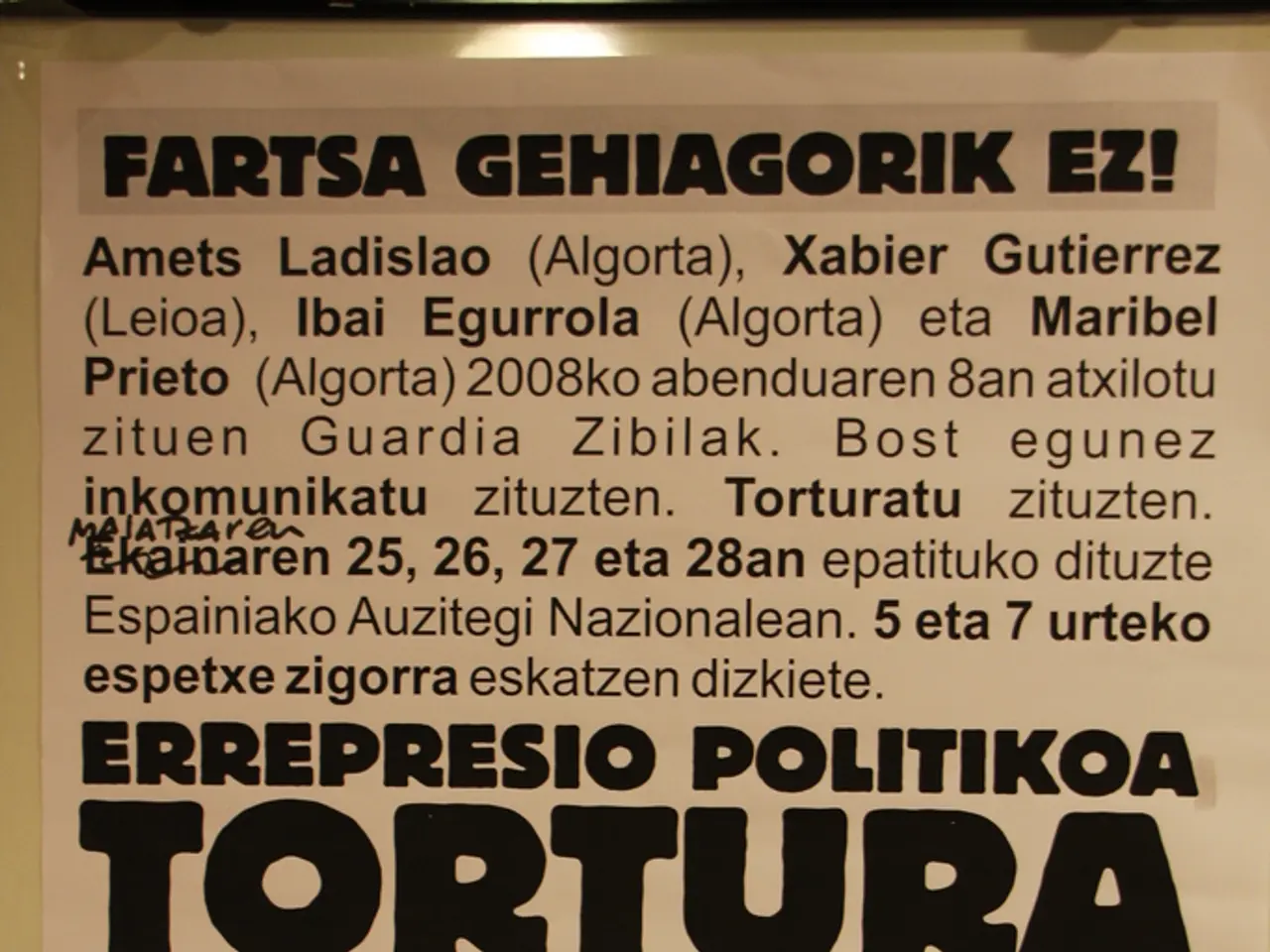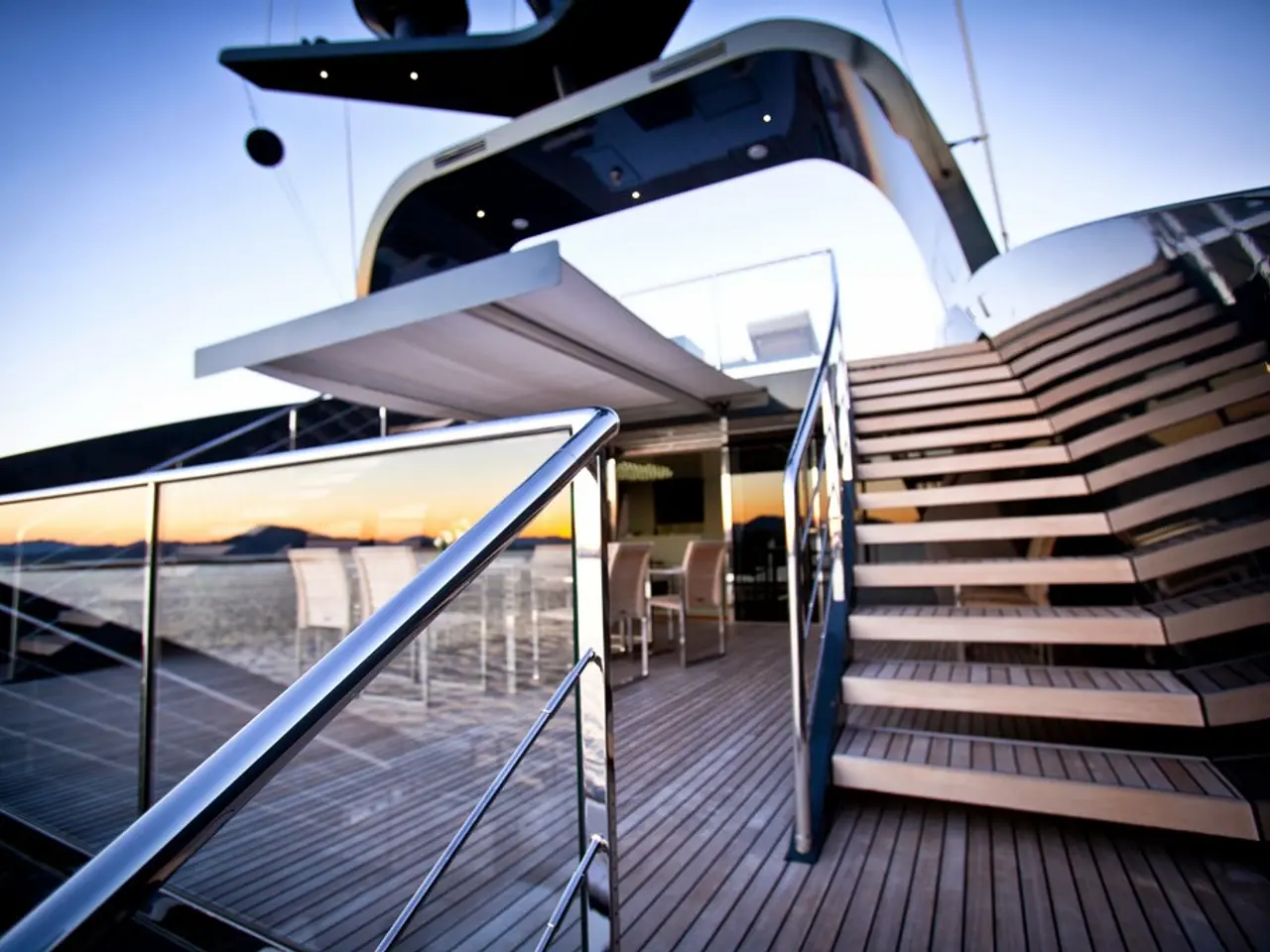NATO proposes excessive defense spending hike, deemed 'unjustified' by Spain
Spain Declines 5% GDP Defense Spending Proposal
Madrid is balking at a NATO plan to boost defense spending to 5% of GDP, finding it "unreasonable."
In a letter penned to NATO Secretary-General Mark Rutte this week, Spanish Prime Minister Pedro Sanchez said Spain couldn't commit to a specific spending target linked to GDP at the upcoming NATO summit in The Hague.
The U.S. has been pushing its allies to invest 5% of their GDP on defense and military needs. In June, Sweden and the Netherlands announced they aim to meet this target. Many other NATO members are on board, but Spain stands out as the lowest spender, currently allocating less than 2% of its GDP to defense expenditure.
Back in April, Sanchez stated the government would escalate defense spending by 10.5 billion euros ($12 billion) to reach NATO's previous 2% GDP target. However, Sanchez has drawn the line at the 5% threshold.
Strategic concerns about Russia drive the spending ambitions among nations like Poland and the Baltic states. These nations have already pledged to meet the higher 5% target. But countries like Spain, Belgium, Canada, and Italy grapple with fiscal constraints and political considerations, making it difficult for them to shoulder the financial burden of reaching 5%.
NATO leadership is working to strike a balance between the allies and find a compromise solution. Dutch Prime Minister Mark Rutte previously hinted at proposing a new plan to resolve the standoff, appealing for unity before significant NATO meetings. Debate also surrounds the timeline for achieving the spending targets, with proposals stretching up to 2032.
SPANISH STUBBORNNESS STALLS ALLIANCE
The NATO camp remains divided over the defense spending hike, with Spain taking a hardline stance. The Dutch are working to craft a compromise proposal that may help appease countries resistant to ramping up their defense spending.
The push for a 5% GDP defense allocation is mainly driven by nations on high alert amid increasing threats from Russia. Some NATO members, including Poland and the Baltic states, have already signaled their willingness to meet the higher spending level. However, countries like Spain, Belgium, Canada, and Italy find the target financially untenable.
Despite the fiscal obstacles, NATO leaders hope to reach a consensus on defense spending by the time of the NATO meetings later this year. challenges, the Dutch prime minister is working on a new proposal to break the deadlock and sway reluctant nations towards the 5% target.
As for Spain, the government is adamant about maintaining its defense spending at the current level or near it. The stubborn stance poses a challenge for NATO unity, particularly in the face of an increasingly aggressive Russia.
With these divisions, some experts worry about the alliance's ability to respond effectively to emerging threats. It remains to be seen whether the Dutch can secure a compromise that will secure the support of nations like Spain. The clock is ticking, with security concerns growing as debates drag on.
- The Dutch are working to craft a compromise proposal to help appease countries resistant to ramping up their defense spending, such as Spain, which has taken a hardline stance against the push for a 5% GDP defense allocation.
- Spain's government is adamant about maintaining its defense spending at the current level or near it, posing a challenge for NATO unity, particularly in the face of increasing threats from Russia.
- With security concerns growing as debates drag on, experts worry about the alliance's ability to respond effectively to emerging threats. It remains to be seen whether the Dutch can secure a compromise that will secure the support of nations like Spain.






